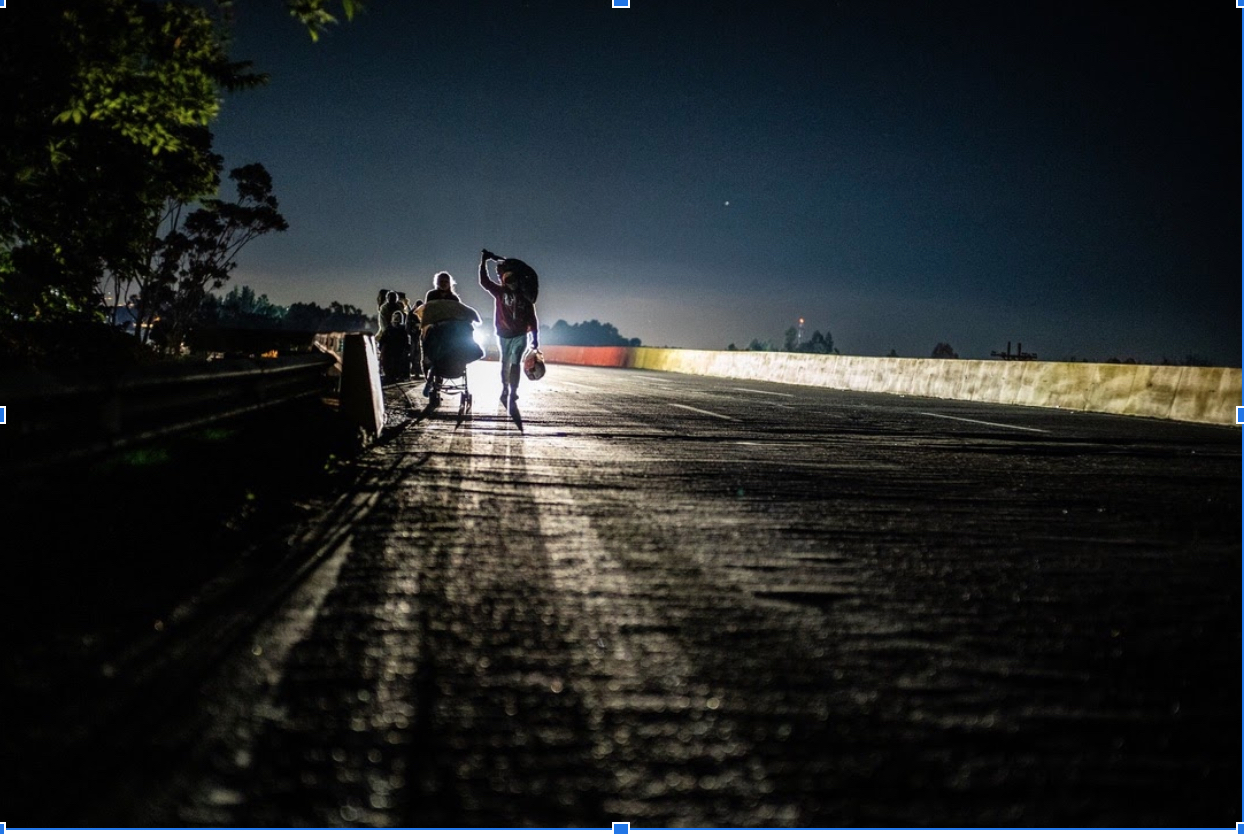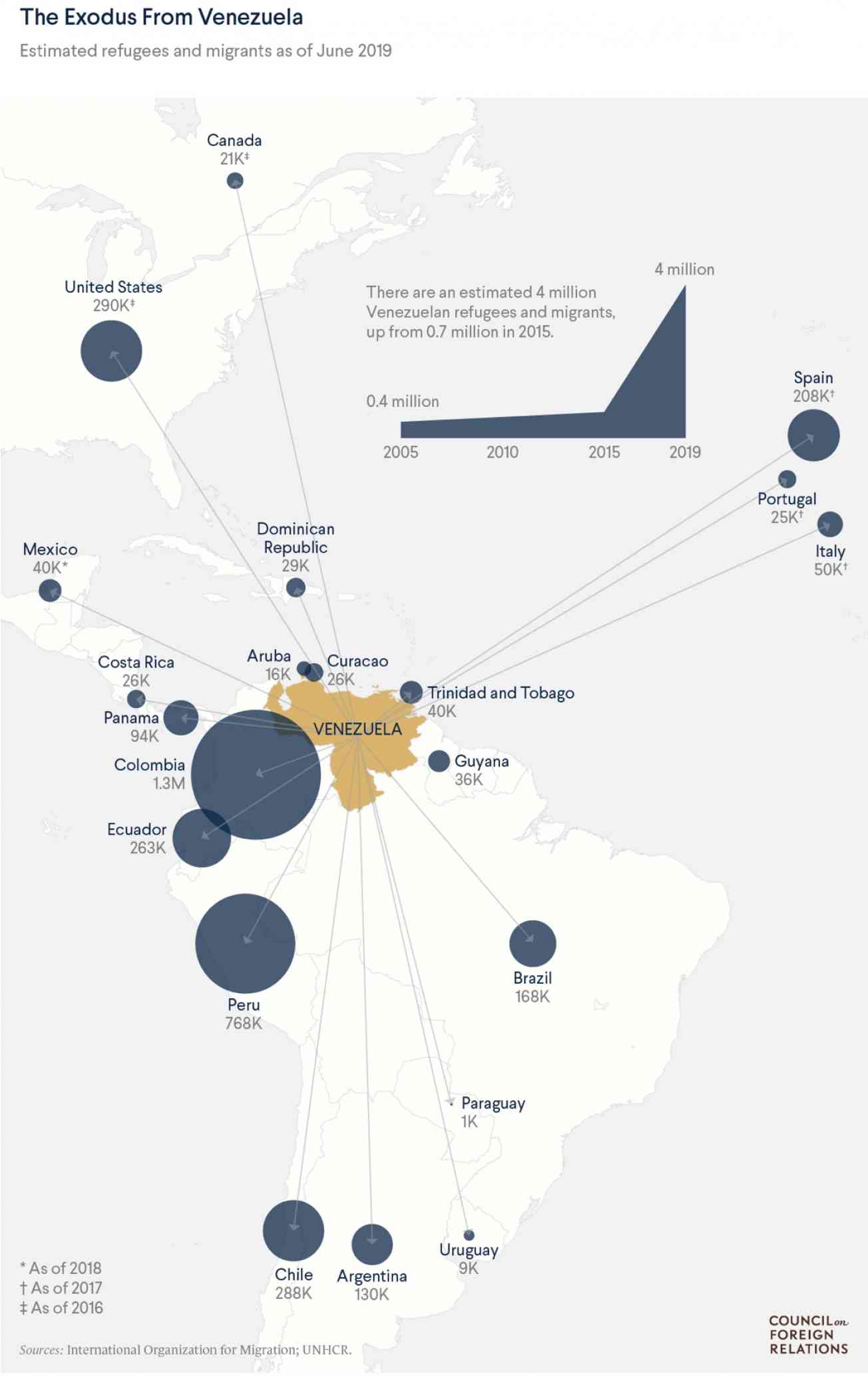
Where will we go? That question has been on the mind of nearly every Venezuelan in recent years. For some, the decision is easier than for others. For millions, the only transportation option is on foot. Some trek alone, while others carry children in their arms and in their bodies. There are rivers, rain, freezing temperatures, people looking to take advantage of and exploit them. Some carry documents. Some band together to help each other as they seek to find their new place of refuge. All have dreams of a better life, of sending remittances to family who could not make the journey, who are caring for their children, their parents, their homes, their pets, their memories. For many this will be only temporary*, until their country is stable and they can return to a Venezuela with jobs, education, infrastructure, healthcare, and hope.
COVID-19 has complicated the plight of the Venezuelan migrants in Colombia. Many who had jobs lost them and could no longer pay the daily rate of a room (approx. 30,000 COP or $8.50 USD). Many decided to walk back to Venezuela, where they would wait out the virus with family until returning again.**
In early September of 2020 I took a trip with my family from Bogota to Villa de Leyva. We took the main highway heading north. I had heard about the Venezuelans who walk the south highway going on their way to Bogota or beyond. We passed many families walking on the asphalt, some wheeling carry-on sized luggage, some carrying small children, holding their hands or maneuvering strollers on the often uneven terrain. Some helped push and pull handcarts piled high and tied with the belongings of their group. Much of the journey was uphill.***
I thought of how discouraged these travelers might feel, to be turning back. Did they still have dreams? What keeps them going? Did they feel hopeless?
At nearly every street corner or supermarket entrance in Bogota you can find a Venezuelan parent asking for help to feed their family. Many walk with cardboard signs that say things like “I am the father of two beautiful princesses, please help. Often they have their children with them, bounding alongside with ready smiles and bright eyes, and a quick “Thank you, may God multiply your blessings” for a mere 1000 pesos (.28 cents) or less.
Hope is alive in them. They feel the rain, they feel the sun, they experience the same life as their parents but without the burden of worry. They walk. They laugh. They hope.
*Ninety-three percent of travelers on foot pass through neighboring Colombia, and 44 percent (1.3 million) of those stay.
**For more information about how the coronavirus is effecting Venezuelan migrants read “A Mother, Her Son--and Their 1,500-mile Search for Home,” New York Times, November 27, 2020https://www.nytimes.com/2020/11/27/world/americas/coronavirus-migrants-venezuela.html

Official Statement on the Detention of Refugees and Ongoing Community Violence
With another death in Minnesota and continued violence toward individuals and groups standing up for their communities, we acknowledge the profound fear and uncertainty people are feeling--not just locally, but across the country.
On top of this, there are reports that refugees invited and admitted to our country through the U.S. Refugee Admission Program are now being detained, meaning that our new friends and neighbors feel that fear most acutely.
Refugees have already fled violence and persecution once. They came here legally, seeking safety. In moments like these, we reaffirm our commitment to building communities where refugees and immigrants can live without fear. Where they can go to work, send their children to school, and build lives of dignity and belonging.
We call for due process, accountability, and humanity in all immigration enforcement operations. We call upon our leaders to demand the demilitarization of our neighborhoods and cities. And we call on all of us to continue the work of welcoming and protecting those who have been forcibly displaced from their homes.